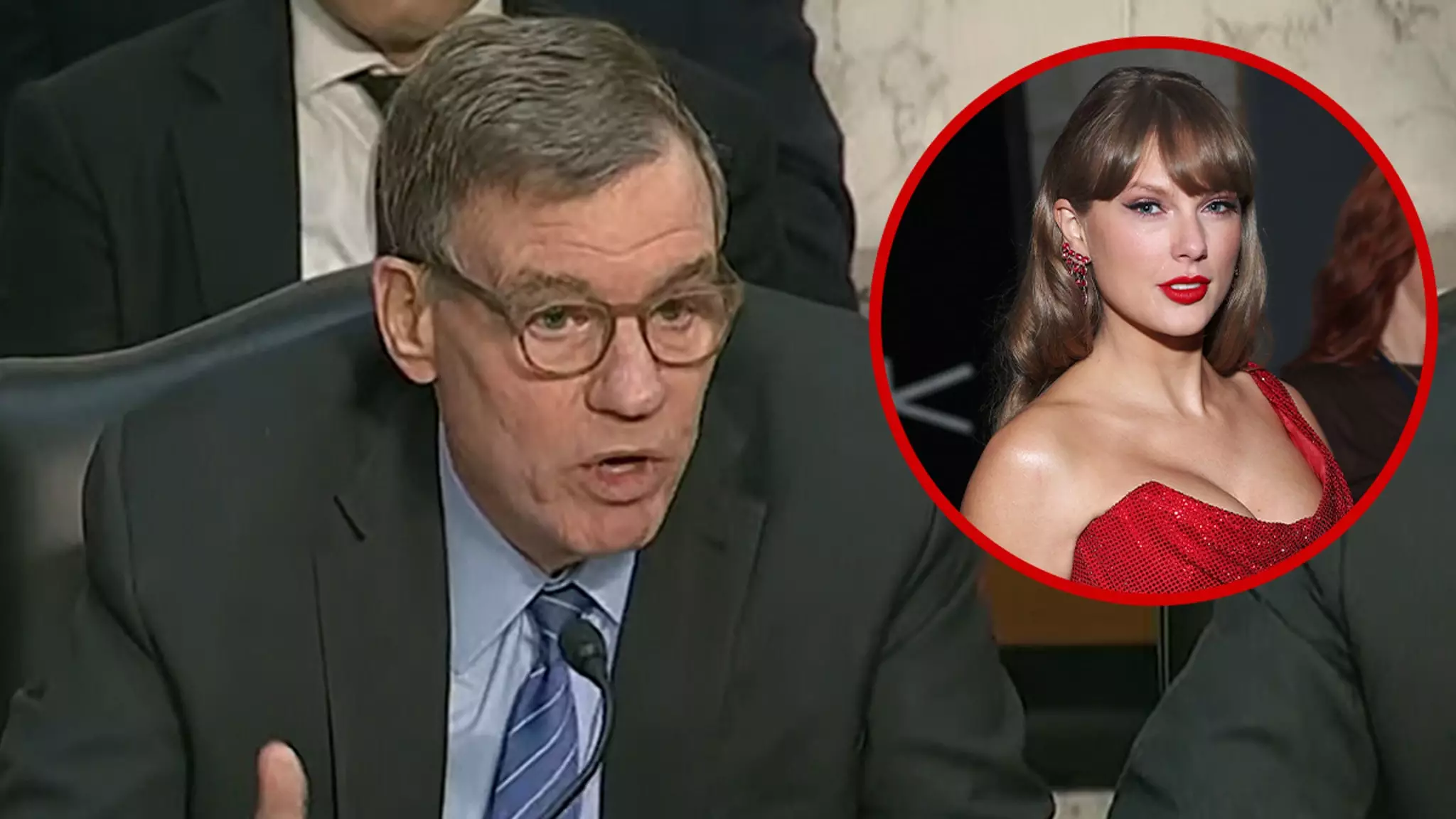In an unexpected twist, pop icon Taylor Swift found herself at the intersection of music and national security during a recent Senate intelligence hearing. The emerging debate surrounding global threats and the importance of international collaboration was illustrated vividly when Virginia Senator Mark Warner invoked Swift’s name while discussing the precarious nature of our alliances. This connection raises compelling questions about how cultural figures can inadvertently influence crucial political discussions, especially in a world where threats often lurk in the shadows of public events.
The context of Warner’s remarks centered on a recent security breach in which classified information was inadvertently shared among defense officials, leading to significant scrutiny of how intelligence is communicated. With a dramatic backdrop painted by intelligence failures and accidental disclosures, the mention of Swift underscores how the stakes have dramatically changed, as even the lives of celebrities can become pivotal in discussions regarding preventive measures against terrorism.
Security Breaches: A Lesson Ignored
What prompted this unusual blend of pop stardom and national security discourse was a sensational report that revealed a magazine journalist had been mistakenly included in an encrypted group chat on Signal, where officials discussed sensitive plans for a U.S. bombing operation in Yemen. The casualness of such discussions—especially given the revelatory tone regarding European allies—raises eyebrows about the seriousness with which officials treat national security. The disparaging comments about allied nations only exacerbate concerns, suggesting a lack of respect for the very relationships that bolster U.S. security interests.
In light of these revelations, Warner’s reference to the foiled attacks against Swift’s concerts illustrates the very real consequences of failing to maintain strong international partnerships. When Swift’s tour in Austria was targeted by terror suspects last summer, thanks to timely intelligence sharing between the U.S. and European agencies, a potential tragedy was averted. Emphasizing a real-world consequence, Warner poignantly highlighted that “sharing of information saves lives,” reinforcing how interconnected our security is with our global allies.
The Cultural Connection: Icons and Intelligence
While Swift may not have signed up for this role, the very act of mentioning her amid discussions of global threats serves to humanize the abstract concept of security. Swift’s fanbase, a diverse group ranging from teenagers to adults, represents a significant fraction of the populace who might not engage with political discourse regularly. By evoking a figure so widely recognized and loved, senators can bridge the gap between mundane discussions about intelligence workings and the actual implications those conversations have on everyday lives. This interplay indicates a continued trend in which popular figures inadvertently become symbols of larger societal concerns—serving as reminders of our vulnerabilities.
Conversely, one must critically assess the implications of this blend of celebrity culture and serious governance. Utilizing a pop star’s notoriety highlights the absurdity of the situation. Should we really need a Taylor Swift reference to capture attention on matters as dire as terrorism? This ran in stark contrast to the gravity of the security discussions, showcasing a new kind of theater where everyday life collides with the hidden machinations of government protocols.
Red Flags in the Intelligence Community
As the fallout from the Signal chat incident continues to reverberate through Washington, increasing calls for accountability emerge. The intelligence community has been under scrutiny not just for the breach itself but for the overarching culture it fosters—one that seemingly prioritizes informal communication over established, secure protocols necessary for discussing classified operations. The striking engagement with Swift’s narrative could serve as an indictment of a system that is anything but transparent to the very public it serves.
Additionally, as highlighted by the careless treatment of classified material, the potential ramifications stretch beyond American borders. With international terrorism being a global threat, the lackadaisical attitude exhibited by certain individuals in the discussion elite undermines the credibility of allies who rely on the U.S. for collaboration. Swift’s unintentional cameo in these discussions encourages a moment of introspection about how we elevate culture while neglecting adherence to protocols that can protect us all.
Through all this, it is evident that while the intersection of pop culture and national security raises eyebrows, it also serves as a powerful catalyst for meaningful conversations about global cooperation. Perhaps it signals a pivotal moment where cultural icons like Taylor Swift can inspire renewed vigor for the alliances and communicative integrity necessary to safeguard humanity against potential threats.

Leave a Reply